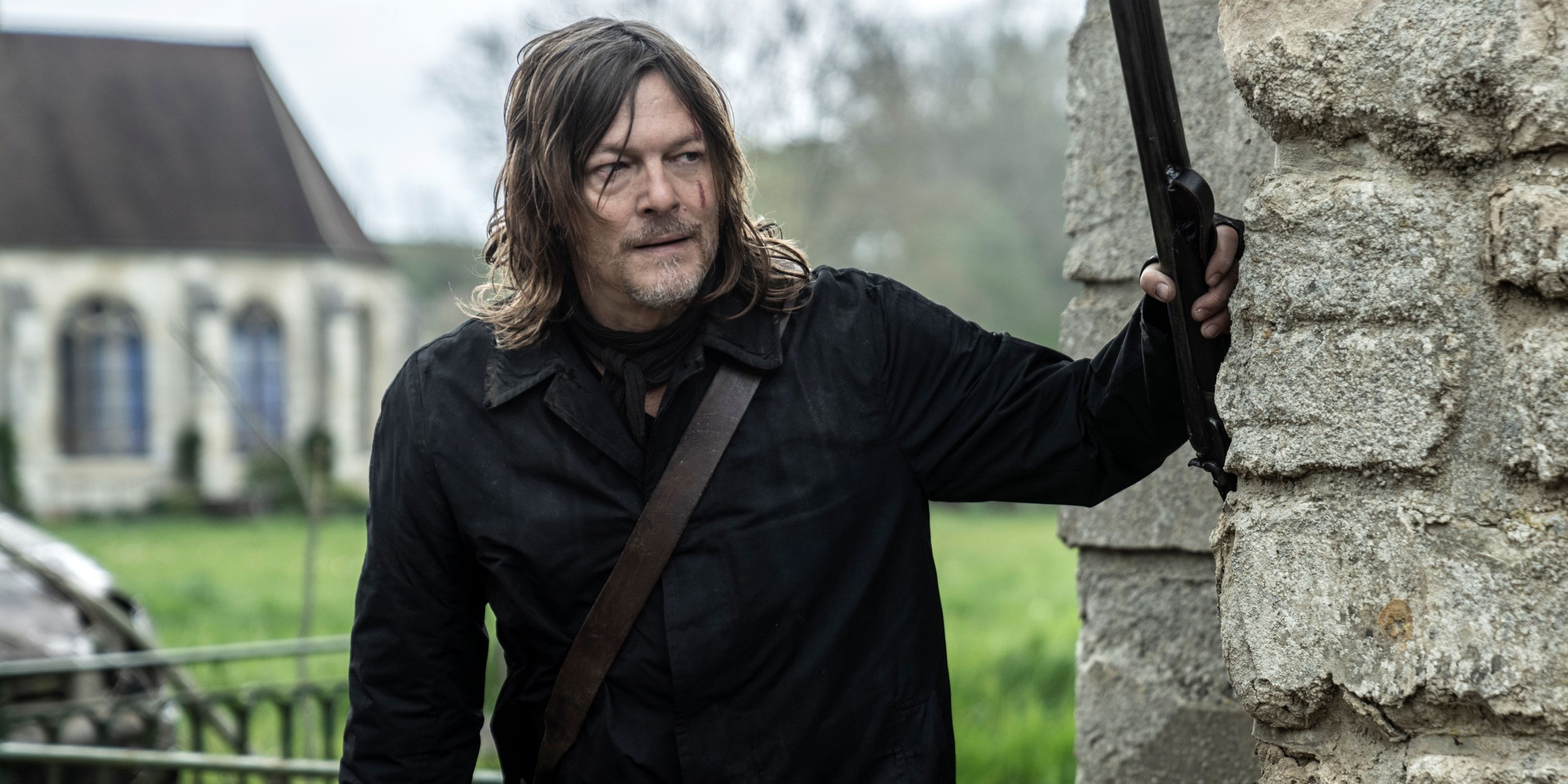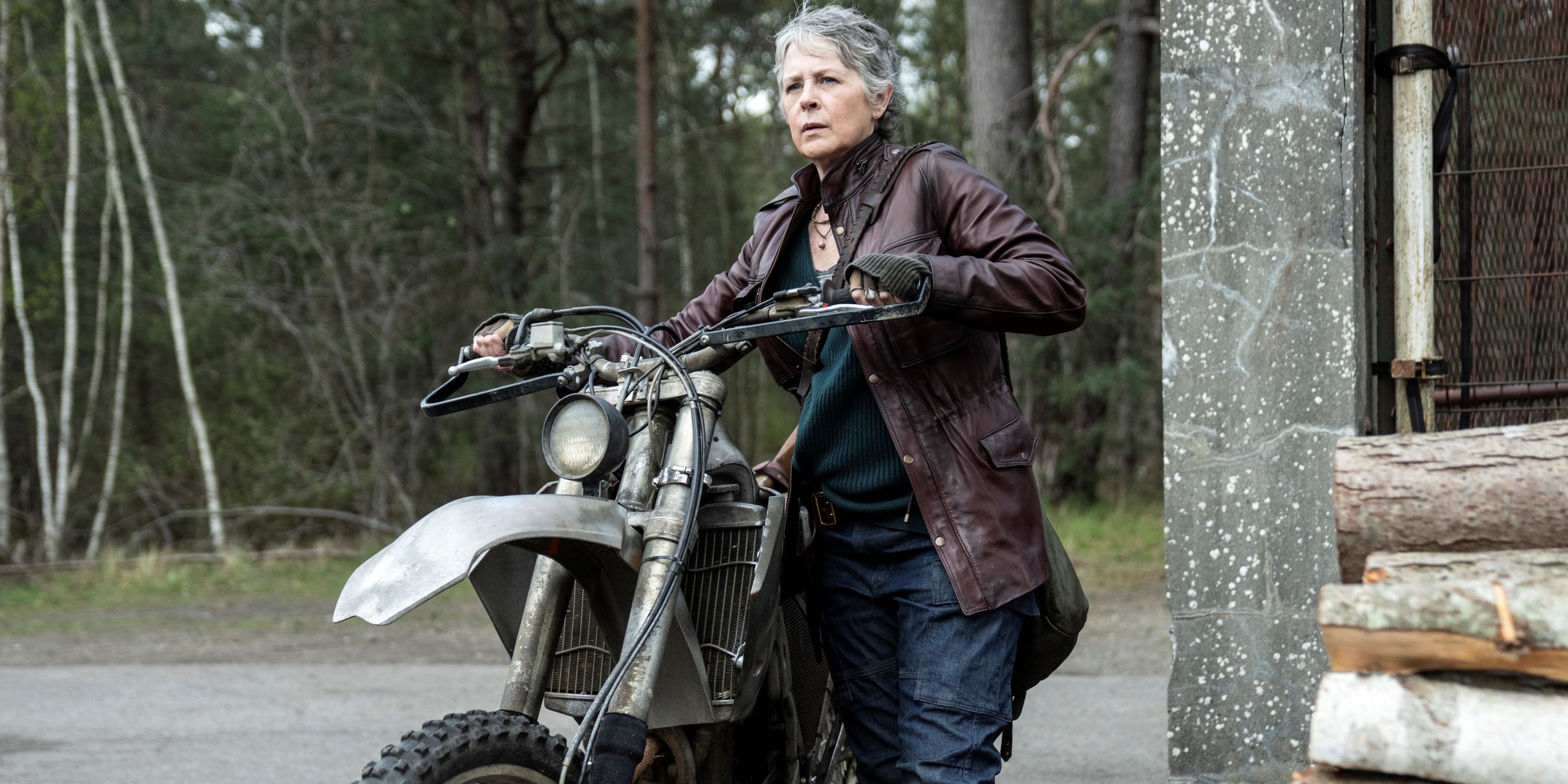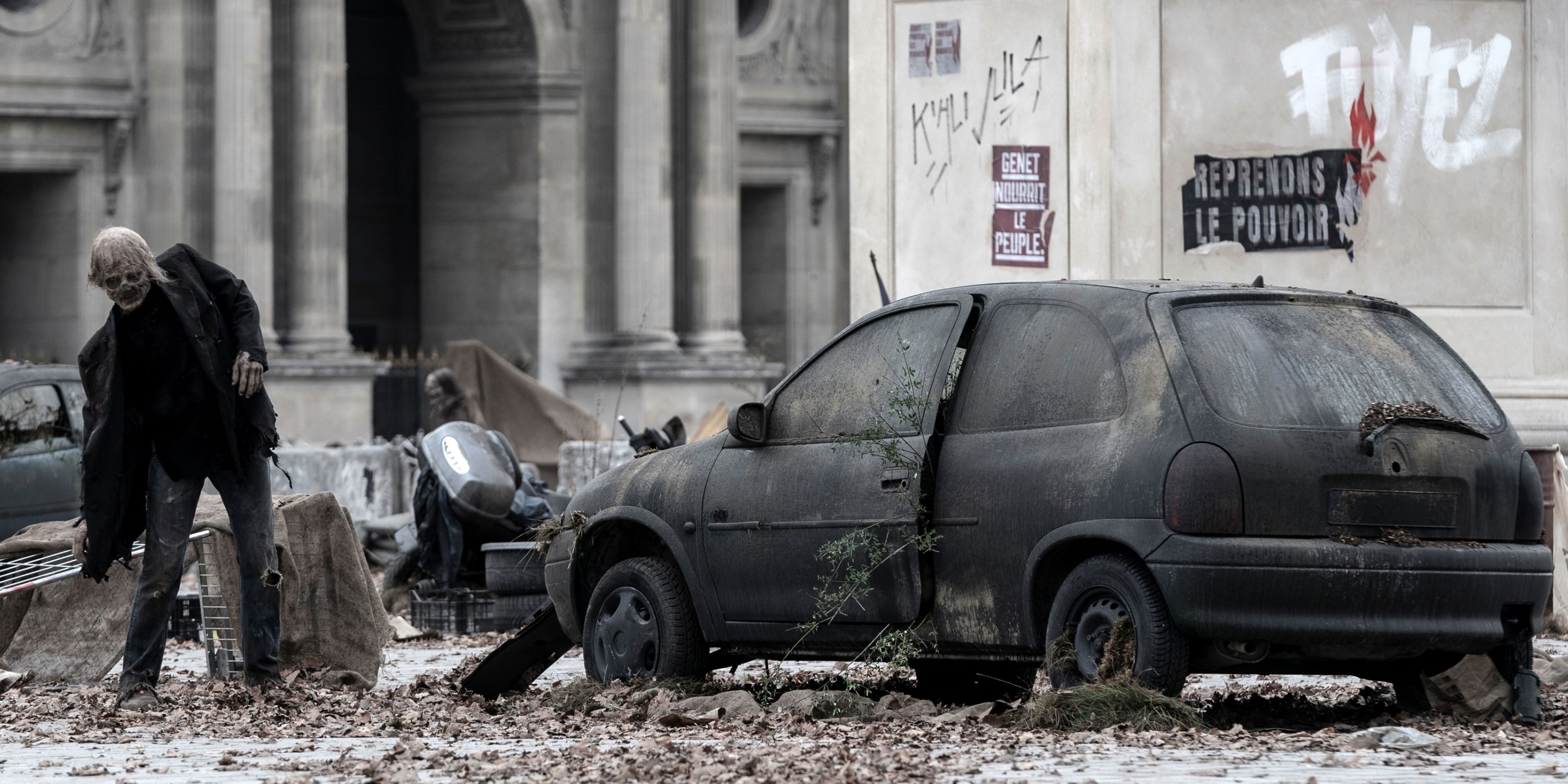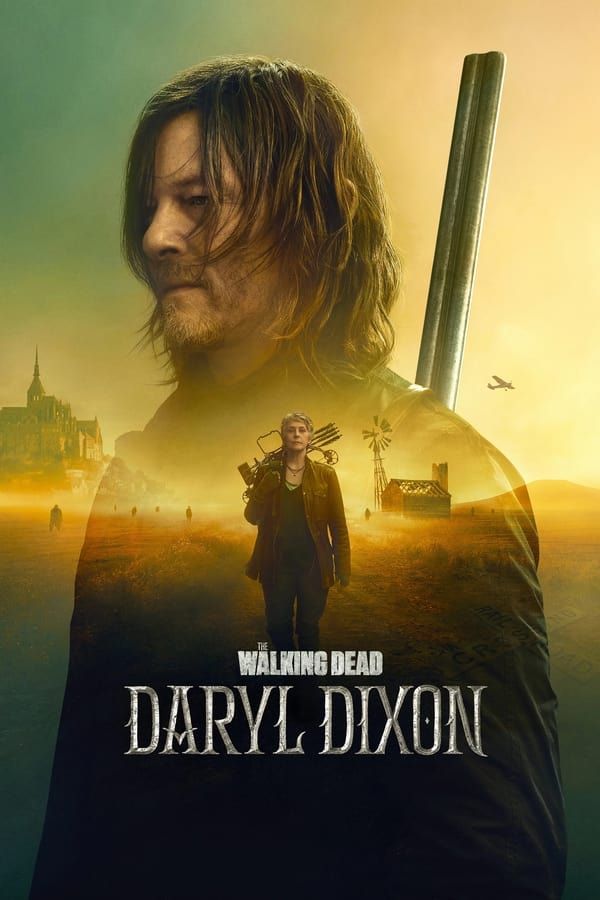[Editor’s note: The following contains some spoilers for The Walking Dead: Daryl Dixon – The Book of Carol.]
The Big Picture
- ‘The Walking Dead: Daryl Dixon’ Season 2 sees Daryl (Norman Reedus) and Carol (Melissa McBride) face new challenges in France before heading to Spain in Season 3.
- Showrunner David Zabel discusses the unique dynamic between the characters of Daryl and Carol and the actors who play them.
- Season 2 delves into Carol’s past, forces her to confront guilt, and explores the deep bond between Daryl and Carol.
The AMC series The Walking Dead: Daryl Dixon – The Book of Carol has reunited fan favorite characters Daryl Dixon (Norman Reedus) and Carol Peletier (Melissa McBride) in France, just when they needed each other most. Carol has been fighting old demons from her past while Daryl has been struggling to figure out what’s next and whether to even return home. As enemies become unexpected but much-needed allies in the fight for survival, true friendship becomes invaluable.
They’ve been through so much together, but this is not the end of the journey for Daryl and Carol. The spin-off series has already been picked up for a third season that will be set in Spain, where they’ll have to survive new enemies, new Walkers, and whatever their new location has to offer, before they can get back home to the States.
During this one-on-one interview with Collider, showrunner David Zabel talked about what sets this series apart from the rest of the franchise, the juxtaposition of someone as American as Daryl making his way through Europe, getting to inject Carol into an already moving story for Season 2, having a lot of conversation about the moment that Daryl and Carol would reunite, forcing Carol to confront her long-held guilt, the deep connection Daryl and Carol share, how things are going with Season 3, ways the move to Spain will affect things, and future plans for Season 4 and beyond.
‘The Walking Dead: Daryl Dixon’ Has Grown Out of the Familiar Universe While Also Becoming Its Own Thing
Collider: This series feels so different from the mothership series, and yet still part of the world of The Walking Dead. What do you think accounts for that fact? Is it just the change in location and vastly different scenery?
DAVID ZABEL: That’s what’s awesome. That was my job, honestly. When I was brought in, my job was to make it grow out of the world of The Walking Dead universe but make it distinctive and make it feel like its own thing, and do something that felt new but didn’t feel untrue or inauthentic to the original universe. Some of it is just where we shoot it. It’s these beautiful, amazing places that are so different from Georgia. And some of it is the other actors and the European aspects that we try to bring to the stories and the characters. It’s also giving more room to breathe, in the first season with Daryl, and in this season with Daryl and Carol, for these characters who have often been part of large ensembles and now get a lot more focus. So, you just get deeper into those characters and it changes the vibe in a way that makes it feel like it’s not repetitive, but it is consistent with what I’ve seen before.
0:59
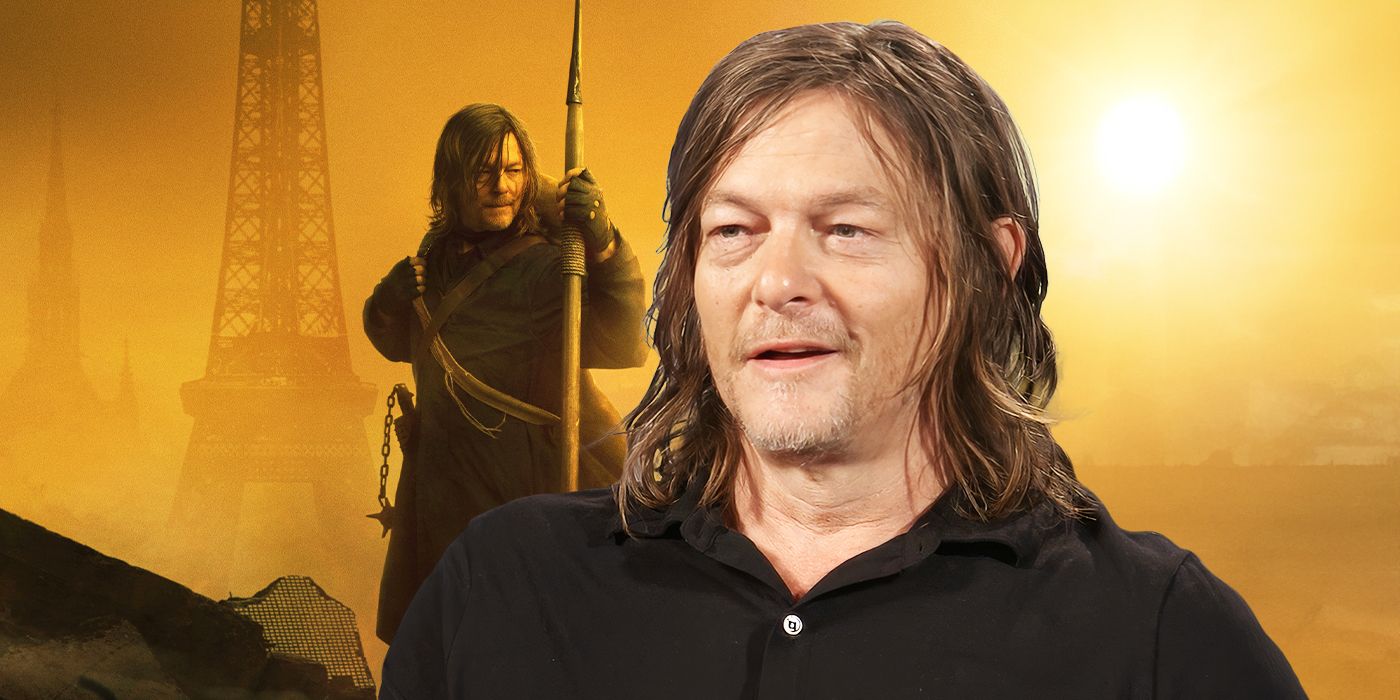
Related
Norman Reedus Says the ‘Daryl Dixon’ Season 2 Finale Is the Best One-Hour Walking Dead Thing Ever
Work is beginning on Season 3 ahead of the Season 2 premiere.
It’s probably also partly the character that you’ve put in this location. Daryl is probably the most uncultured character in this place that, even just visually, has so much culture to it.
ZABEL: Yeah, and that was cool. Norman and I talked about that, from the beginning. As a character, Daryl is a guy who, in some ways, is an American prototype. He’s very American. He’s stayed close to home. He hasn’t traveled a lot. He’s not worldly. He’s not very educated. He’s not terribly cultured. So, to take that character, who’s this classic, quiet American hero with an edge and put him into this place, France, which is a bastion of long history and culture and refinement, that’s a great juxtaposition. That’s a lot of what we talked about. We wanted to take these two American characters, Daryl and then Carol, and broaden their horizons and expand what they were getting exposed to, and then seeing how that changed them and affected them in the apocalypse.
After what you set up and were able to do with the first season, what did you most enjoy about just being able to jump right back into it all and not have to set it all up, this time around?
ZABEL: It was great because we got to both continue a story that was already moving, but also inject this whole other story, which is really exciting. On one hand, we had Daryl’s story, which is continuing forward and moving from where we ended in Season 1 very clearly. That was the design. But then, this other element is Carol, which is so exciting for the audience and for us as writers and everybody. We were like, “Oh, now we’re telling this new story. How does Carol enter this world? How does Carol come into the show and how does that affect it?” In a way, it was really a gift to be able to continue the story that we had started in Season 1, and also start a whole new story that, at the end of the day, obviously interacts with it and crosses over, and the two become one later, later in the story. We had great energy for Season 2 because we were already moving, on one hand, and then we’ve got this great, very dynamic way of coming in with Carol, on the other hand. It was an easy way to feel like the adrenaline is flowing and the story is pushing forward very quickly.
How Did ‘The Walking Dead: Daryl Dixon’ Reunion Between Daryl and Carol Evolve?
Were there a lot of conversations about how to reunite Daryl and Carol in a realistic way? Did you talk about how to pull off a believable way for her to find him in France? Were there other ideas that you considered?
ZABEL: Yeah, there were. There were definitely a lot of conversations. There were some things we felt we had no option on. For example, the method by which Carol gets from the United States to France could not be the same mode as Daryl. It needed to be a different mode. And even Daryl’s mode was a complicated story to get to. We did, at one point, think she would come exactly the same way that Daryl came. That was an initial thing. We thought maybe she’d be able to find the same exact route and come the same exact way, but that seemed boring. We wanted to make Carol more inventive and creative in searching for a way. Also, as storytellers, we didn’t think the audience would be so excited to see or to know that she just did it the exact same way, so we had to come up with a different way. We had to figure out how Daryl is where he is, how to get to that place, and then, once you’re in that place, how to locate an individual in the apocalypse. Those were all big challenges. While we were doing Season 1, we were aware that was coming. We knew that Carol and Melissa were coming, so that was the reason we designed the part of that story in episode five, where he tries to radio home and he gets through to Carol. It was partially because we wanted the emotional connection of the two characters and of Daryl trying to get home, but it was partially because we knew she needed to have some breadcrumbs to follow, ultimately, to try to track her friend down.
It feels like Carol is being confronted with her guilt in Season 2, whether she likes it or not. Did it feel like putting her in a situation where she had to deal with it and couldn’t avoid it was the best way to really make her resolve her own feelings about the past?
ZABEL: Absolutely. That was a big thing that Melissa and I spoke about, from the minute we knew she was gonna be on the show, which was pretty early in my tenure. We talked about that as a story and it was something that we felt was really relevant for Carol. We felt that was something that hadn’t been resolved for the character — dealing with the unresolved grief that she has experienced, throughout the mothership series, starting mainly with Ed and Sophia. From the very beginning, that was going to be Carol’s internal struggle and emotional conflict, and we talked about how that combines with the external mission of, “I have to go find my friend. I have to go get my friend.” The beauty of that is that we didn’t have to fabricate it a lot because, of course, so much of the friendship of Daryl and Carol was forged at the time that Sophia was missing in Season 2 and he would not give up searching for her. It just made so much sense that now we’ve got a story where Carol is searching for Daryl, and a lot of that memory and a lot of that stuff that happened in the intervening time is coming back to her in ways that she’s having to process and confront. It was very intentional and it was very discussed, but it also felt quite organic. We didn’t have to fabricate or manipulate it that much. It felt pretty natural to us, once we got into it, that she’s searching for her friend, and her friend is her friend largely because of how he helped her when she was in her most grief-stricken period.
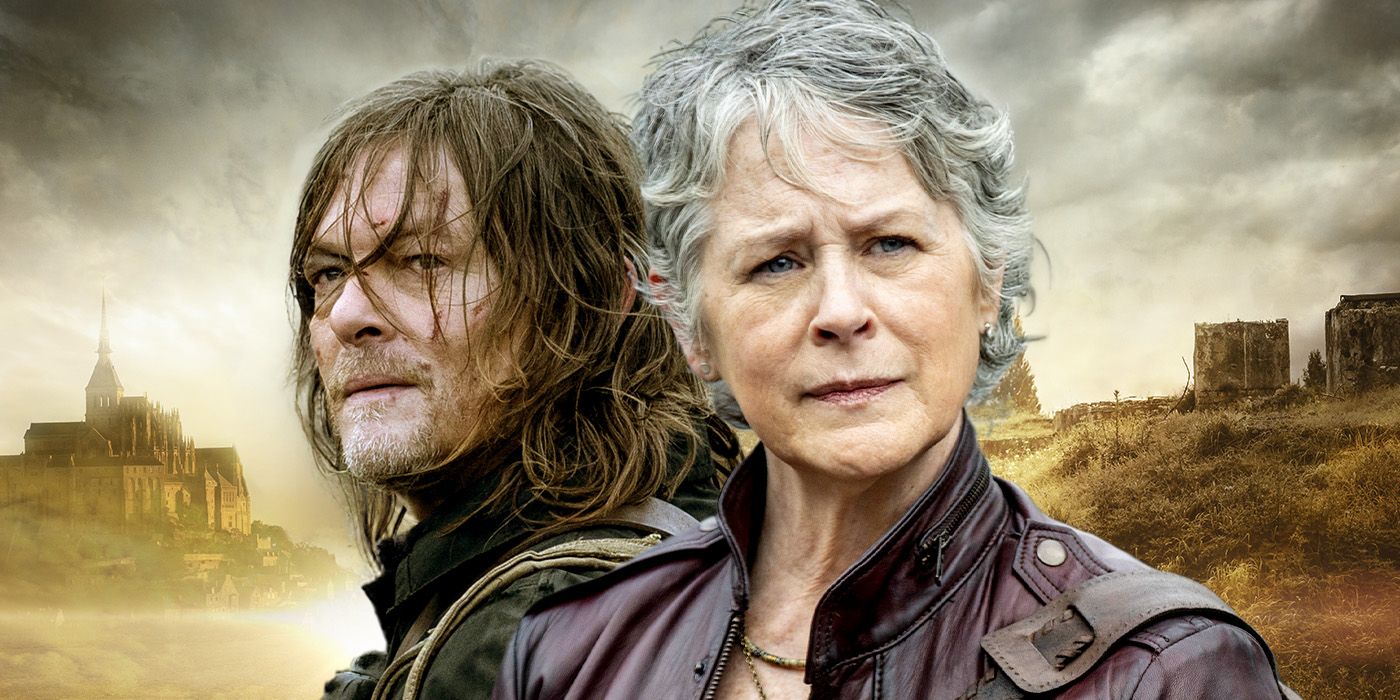
Related
Norman Reedus and Melissa McBride on Their ‘Daryl Dixon’ Reunion and Moving the Story to Spain
Reedus also talks about how he’d like to see Daryl and Carol get a happy ending that consists of something good happening for them.
You’ve said that you’re not interested in making Daryl and Carol a couple. How do you define their connection? What do you think it is about them that made them rise over so much of the franchise and become something so important to fans when it’s not something that was from the source material?
ZABEL: It’s really interesting. That’s a really good point, that that relationship, at least, is purely a product of the series. On one hand, you’ve seen those on the show, if you’ve watched from the beginning, be remade by the circumstances of the apocalypse. You’ve seen how Daryl has evolved into a different guy than he started out as, and you’ve seen how Carol evolved similarly. Immediately, the audience was drawn to those two characters and drawn to the way that they became friends. They are quite different characters, but they are the same in the way that I just described. And then, on top of that, people talk about chemistry, and there’s a chemistry between Melissa and Norman that’s just actors who have a connection. I don’t think it’s romantic, and I don’t think the characters feel romantic in that way, but it’s as strong as that. There’s a connection between these two characters and these two actors that is very dynamic and very exciting, from an audience point of view. To me, it was always all the more exciting because it escaped the classic archetype or even cliché of romantic chemistry. It’s a deep friendship between two people who aren’t always in agreement, who are sometimes in conflict, but who clearly love each other and will do anything for each other. That was always the beauty of the relationship, before I even worked on The Walking Dead. Watching the show, I was like, “That is just very cool, to have a man and a woman who have a relationship like that, and you can feel that deeply for that relationship, and it’s not about some of the typical romantic entanglements.”
It feels very much like a soul connection, which doesn’t necessarily have to be a romantic connection.
ZABEL: That’s exactly right. We talked about how, even when they’re separated, they’re able to have some kind of, I don’t wanna say psychic connection, but soul connection. They can feel things about each other, even when they’re not with each other.
Moving ‘The Walking Dead: Daryl Dixon’ to Spain for Season 3 Provides Opportunity for Reinvention
How is filming going on Season 3? Did you always know that you would be moving locations? Was it hard to leave France behind, or does Spain feel like it has as much or more there to play with?
ZABEL: We loved France. France was fantastic. The people were great, the crew was great, and the cast was great. We really loved France. But it’s also exciting to move on to another chapter and it does inject new energy and it gives the show a different, whole other look and vibe and quality and flavor. It’s really exciting to be doing it in Spain now. It’s similar to what we experienced at the beginning of Season 1, looking through the prism of the French apocalypse now. Now, we’re looking through the prism of the Spanish apocalypse. That’s really cool. That keeps the show vibrant and alive. Because the characters are trying to get home, there is a sense that they couldn’t really settle anywhere too long. There has to constantly be this desire to try to get somewhere. Where can we get? So, we miss France, but we also love Spain and think it’s a great opportunity to keep reinventing the show and allowing the characters to be exposed to new things.
Each time the show moves locations, it feels like there are different things you can do with Walkers that you might not have been able to do in the last location that you were in. Were there things you had most fun doing with Walkers in France and are you able to really change that up in Spain?
ZABEL: Yeah, we’re trying to continue to evolve the idea of what different Walkers might be in different places, as you travel across the world. We don’t wanna get into something that feels like it’s in violation of the rules of the universe or that gets to be too much. In France, we definitely had a good time and I think it really helped the show that we had the burners and the ampers, the ones that are chemically altered by Genet. And it’s really exciting to find new ways to think about Walkers in Spain too. It gives us a certain amount of permission because within the craziness of the world, it’s plausible that, if you went somewhere else, there would be a different variant of Walker or a different way that people use Walkers or try to deal with them. It really allowed us to break out of some of what was established in The Walking Dead universe in some of the other spinoffs because that was America and over in Europe it’s a little different.
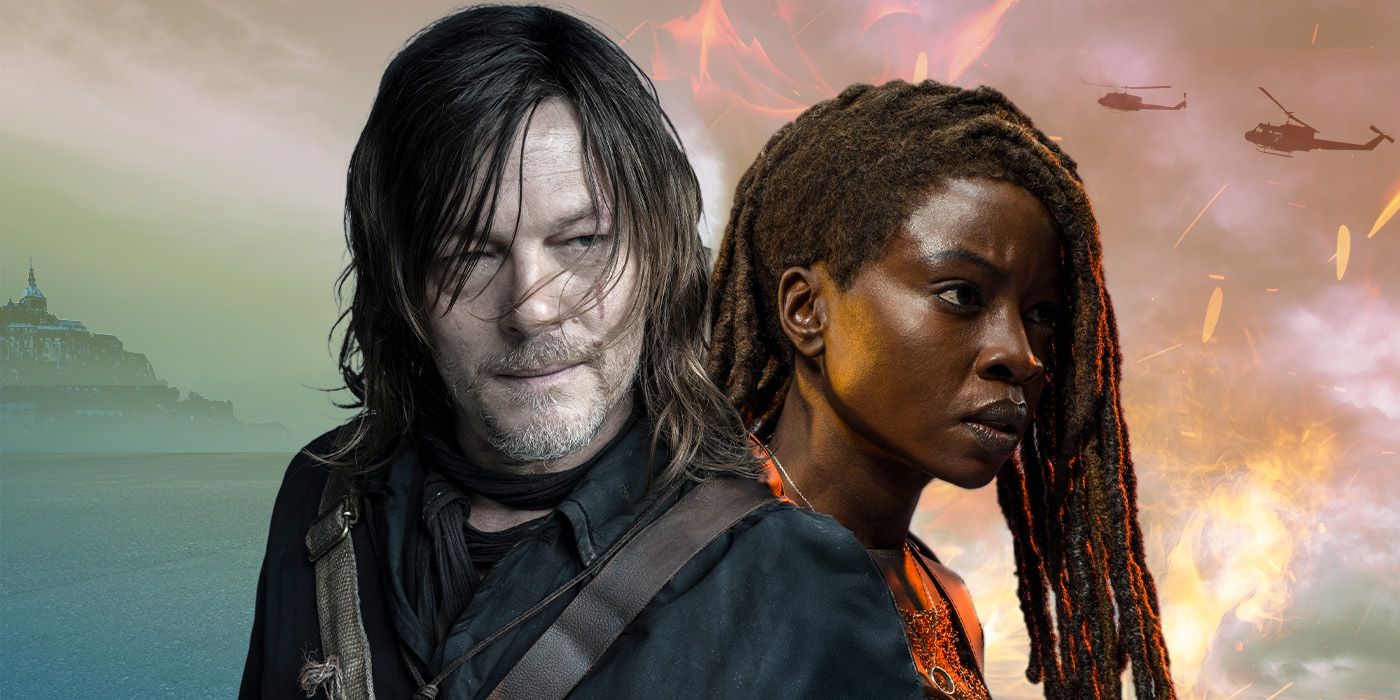
Related
‘The Walking Dead: Daryl Dixon’ Is Challenging Rick & Michonne’s Spin-Off Strategy in a Big Way
And they better not kiss either!
When I spoke to you for Season 1, we talked about how far ahead you had thought about the series, and you had said you had thought about Season 3 and that you had ideas for that. Is the Season 3 that you’re filming now what you thought it would be back in Season 1, or did Season 2 change it in any ways?
ZABEL: I’m sure Season 2 changed it somewhat. It could have changed quite a bit. It changes all the time. As you cast and you write, it keeps evolving. Season 2 was very much what we imagined it would be when we started out because it was such an outgrowth of Season 1 and we knew Carol was gonna come into the show. With Season 3, because it’s brand new and we’re in a brand-new world and we have brand-new characters, it’s certainly evolved quite a bit.
‘The Walking Dead: Daryl Dixon’ Showrunner David Zabel Has a Plan for Season 4
Have you thought about Season 4, at this point?
ZABEL: I have a little bit. Who knows if it will happen. If we get a Season 4, it will be an outgrowth and a continuation of the story we’re telling in Season 3. That’s the pattern I’ve fallen into now. I think in 12-episode segments in my mind, which is two seasons of the show. There are six episodes in a season, so far. The first 12 were all of a piece, and if there’s a next 12, they will similarly be of a piece. If you ask me about Season 5, all bets are off. I have no idea about that.
The Walking Dead: Daryl Dixon – The Book of Carol airs on AMC. Check out the trailer:
Watch on AMC

